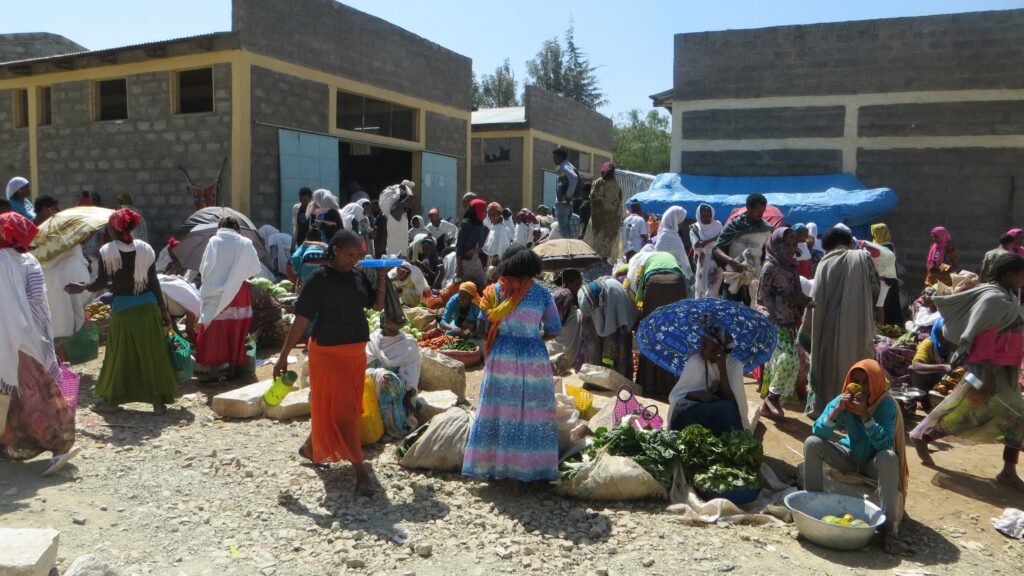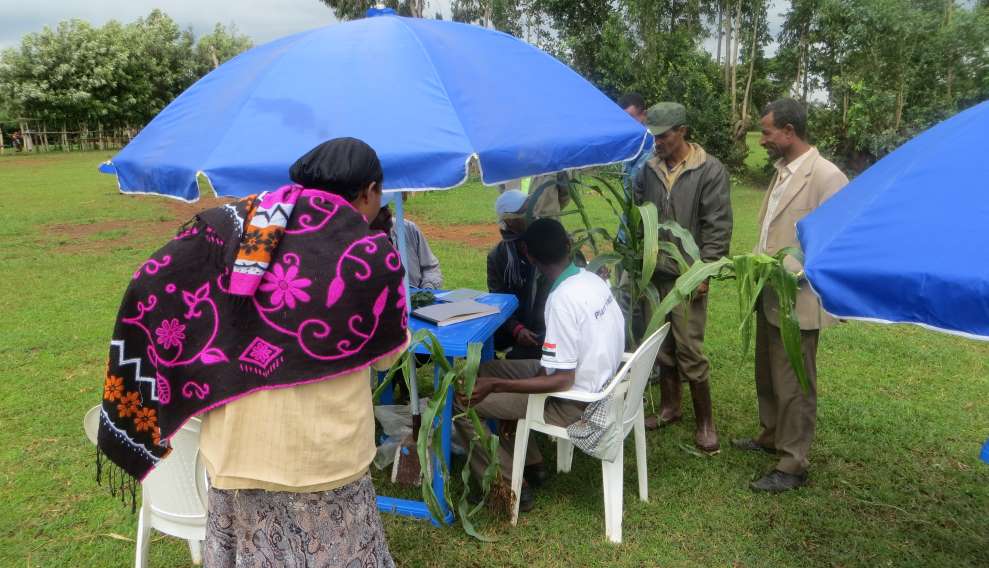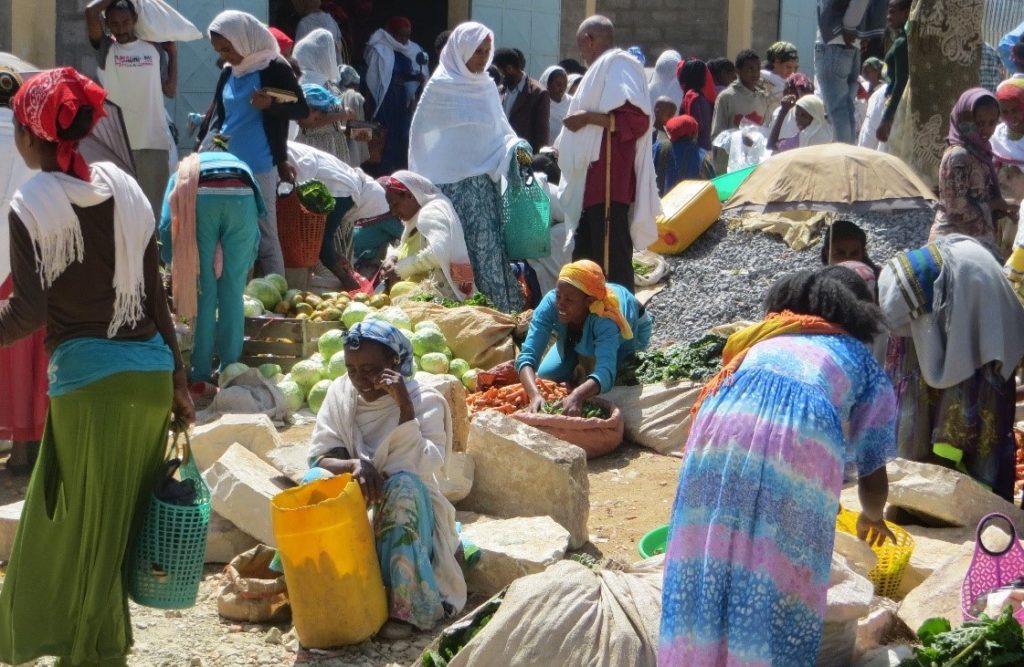Village-based plant clinics benefit Ethiopian farmers
In Ethiopia, smallholder farmers are the mainstay of the economy, with the country’s large rural communities dependent on small-scale farming for food security and income. However, farmers face several challenges when trying to improve crop yields, in particular plant pests and diseases. It is estimated that Ethiopian farmers lose up to 50% of all crops…
Factsheet of the month: July 2015 – Prevention of powdery mildew on mango using cultural methods
The use of pesticides in Ethiopia has been increasing in recent years but it is thought that due to a lack of training and awareness, these chemicals are often being used unsafely and excessively. Many groups in Ethiopia are therefore raising awareness of Integrated Pest Management (IPM) in which control methods are selected based on…
Tuta absoluta: combating the tomato leafminer [Video]
A recent IPM workshop in Ethiopia focussed on the tomato leafminer – a pest that causes devastation on tomato crops in Europe, Africa and South America. This video shows how the workshop attendees dedicated their time to finding out more about the pest, seeing it in the field, and working on recommendations for control. To…
How Mobile Technology is Transforming Livestock Farming In Kenya
Farmers and vets across Africa are increasingly using mobile phones to issue alerts about potential pest and disease outbreaks. The recent introduction of mobile phones that use the open source Android operating system or the iPhone iOS operating system and include GPS and Google Maps have provided new opportunities for developing mobile phone applications, allowing communication…
Coffee Production in Hot Water- The Impacts of Climate Change on the Future of Coffee Crops
Coffee (Coffea) is the one of the world’s favourite drinks and the second most traded commodity after oil, accounting for annual retail value of US$ 90 billion. The two main species used in the production of coffee are Arabica coffee (Coffea arabica), which accounts for 70% of coffee production, and Robusta coffee (Coffea canephora). The…
Wheat rust and climate change – a possible connection
A possible link between wheat stripe rust and climate change was observed by researchers meeting at the International Wheat Stripe Rust Symposium, which convened in Aleppo, Syria last week. The symposium organised by the International Center for Agricultural Research in the Dry Areas (ICARDA) aimed to review the current global status of wheat stripe rust…




